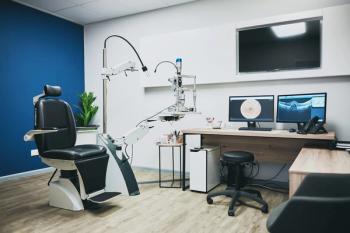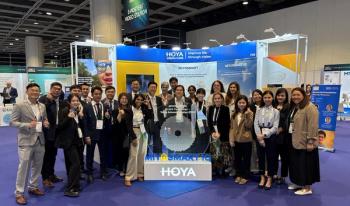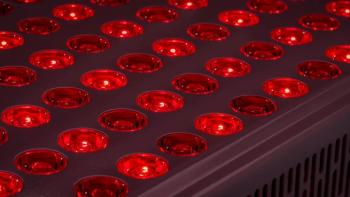
AAOpt 2024: The vision and comfort performance of Infuse multifocal contact lenses
Kerry Giedd, OD, MS, FAAO, was 1 of 20 investigators around the country for a study evaluating the daily disposable contact lens.
At the 2024 American Academy of Optometry meeting in Indianapolis, Indiana, Kerry Giedd, OD, MS, FAAO, presented a poster titled, "Vision and comfort performance of a daily disposable contact lens among excessive digital device users." The poster investigated the performance of Infuse multifocal contact lenses from Bausch + Lomb.
Video transcript
Kerry Giedd, OD, MS, FAAO:
Hi, I'm Kerry Giedd, and at this year's Academy, I was able to present a paper about excessive digital device users and their experience in the new Infuse multifocal contact lens (Bausch + Lomb). We took existing digital device and multifocal contact lens wearers. Of course, all of our patients in this day and age are digital device users, but those patients who self-reported 10 or more hours of digital device use in our study were selected for a subset analysis. And we know in clinic, while 10 hours may seem excessive by a study definition, that is very real-world applicable, and many of our patients, and even ourselves as eye care practitioners, are on digital devices for 10 or more hours. So I felt like this study, in this particular analysis, was really clinically relevant to those of us in practice and who are seeing patients day in and day out.
As we looked at this cohort of patients and their subjective responses and their performance ratings in the categories of intermediate distance and near vision, as well as their comfort ratings, end-of-day comfort, all-day comfort, overall comfort, in other words, and dryness ratings, all of those scores significantly improved in their experience with Infuse multifocal [lens]. So that was a really, I think, impactful and exciting analysis that really translates to private practice and patient care in general.
So we know there's some great components of Infuse multifocal: the kalificon A material, it is enriched with moisturizers and osmoprotectants that really improve and promote patient comfort, and that state of ocular homeostasis, in terms of the 3-zone progressive design that, you know, has a tried-and-true track record. It's been used in other lenses, but now brought to that Infuse platform and that Infuse material, it really, you know, set this study up for success, and those patients and subjects up for success with this lens, because we know that material and that design really works well, and it did come to deliver as we expected.
So in practice, of course, we know that our patients are heavy digital device users, and that's not going away. We continue to see products come to market that try to address this for us, and Infuse is a perfect example of that. You know, the things we look for are features like moisturizing components of the lens and lens material; technology that helps promote ocular surface homeostasis, or just a good, comfortable all-day wearing experience; lenses that don't get dehydrated; lenses that maintain both their comfort and the optical quality throughout the day. Both of those things, of course, are critical to our patients' experience. They need to maintain a comfortable wearing experience from a physical standpoint and optically, of course, we need that lens to perform throughout the day: Morning through night, all visual distances from night driving to long screen hours, of course, and everything in between.
So this study, I was an investigator, one of 20 investigators around the country on this study. You know, the overall experience of these patients, including this excessive digital device cohort, was really, really impressive. We completed the study before the lens came to market, and so it really brought a lot of excitement into our practice for when this lens was going to launch. And now that it has been on the market, and we've seen patients in this lens for a number of months and a year plus, now, it is really exciting to see it all come to fruition. [It's exciting to see] how happy and successful our patients are, and how it really is delivering what we need it to, in terms of visual and comfort performance. So in terms of the study, you know, not all studies in the world of contact lenses in particular translate into real life, where patients experience the great things they did in a study. In this case, I think we really had a product that was set up to deliver because of its ProBalance technology.
If there is one thing you could take away from this study, it is that we have launched a lens, and Bausch + Lomb has brought a lens to market that really is going to deliver for our patients, from both a comfort and vision standpoint. Comfort throughout the day, from the beginning to the end and overall in between; the dryness the end of day experience; and then vision at distance, intermediate, and near—the whole package is there with this lens.
Newsletter
Want more insights like this? Subscribe to Optometry Times and get clinical pearls and practice tips delivered straight to your inbox.





























